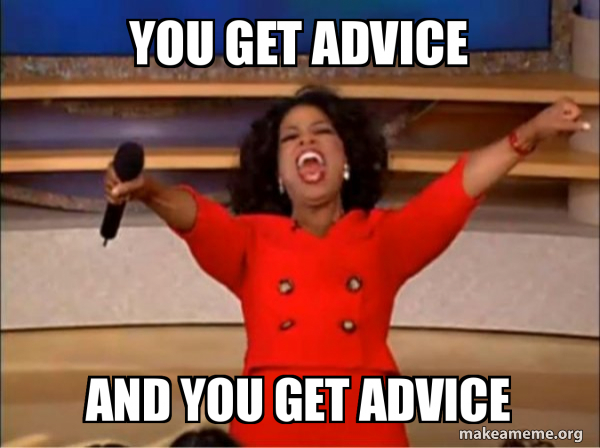SEO titles are very important – they are often the difference between a widely shared article and one that sinks without a trace. After dedicating significant effort to craft quality content, the last thing you need is a lackluster title failing to grab attention or even deterring potential readers. Generally, the title serves as the first (and possibly only) glimpse of your work seen by your audience. It’s the singular opportunity you possess to spark curiosity, convey information, and captivate your ideal reader.
What is an SEO title?

The SEO title is the large text that appears at the top of a search results, and it’s a critical element of a webpage that helps both users and search engines understand what the content of the page is about. It is a brief and accurate description of a webpage’s content and is embedded in the HTML of a website as a meta tag, specifically in the head section of the page:
<!DOCTYPE html>
<html>
<head>
<title>How to shoot lightning from your eyes | Wonderful</title>
</head>
<body>
<!-- The content of your web page goes here. -->
</body>
</html>In this example, “How to shoot lightning from your eyes | Wonderful” is the title tag of the webpage. This title tells users and search engines that the page likely contains helpful information about ocular electricity.
What’s the goal of an SEO title?
Technically, the SEO title is what your browser will display as text in a tab when you visit your webpage, but that’s not really the big picture. Truthfully they serve two larger purposes.
Goal 1: Help search engines rank your webpage in search results
According to Google’s own SEO Starter Guide, the title tag is among the first things Google’s algorithm checks when determining how relevant a page is to a user’s query. Thus, having a well-crafted title tag can significantly improve your page’s search engine rankings.
Goal 2: Entice people into clicking the title to read the article
A well crafted title can also increase the likelihood that users will click on your page when it appears in search results. Think about it: as you are scanning Google’s search results, you are judging the titles and comparing them against the others. A good title attracts your attention and lends confidence that it will deliver the information you need.
How important is your website title?
A study by Backlinko, which analyzed nearly 12 million Google search results, found that pages with a keyword-rich SEO title tag were found to have a slight advantage over those that didn’t have one.
Moz, a well-known SEO software company, reiterates that title tags have “long been considered one of the most important on-page SEO elements.” Their comprehensive study on search engine ranking factors, which involved 150 leading search marketers who provided expert opinions on over 90 ranking factors, ranked page-level keyword usage and content-based factors, including the title tag, as having the third-highest importance, after domain-level, link authority features, and page-level link features.
So, crafting a title tag that is descriptive, unique, and keyword-optimized not only helps search engines understand your content but also invites users to click on your page. The relevance and attractiveness of your title tag can affect your website’s visibility and click-through rate, impacting the overall performance of your website in organic search results.
7 important rules to follow when writing an SEO page title
1. Use Your Primary Keyword
The title tag should contain the primary keyword you’re targeting with the page. It gives search engines a clear indication of the page’s content and can significantly influence your page’s ranking. For instance, if your article is about vegan recipes, your title tag might include “Easy Vegan Recipes.”
2. Place the Keyword Towards the Start
Not only should your primary keyword be in your title tag, but it should also be towards the beginning. This can have a positive impact on search rankings and makes the keyword immediately visible to users.
3. Keep it Under 60 Characters
Google typically displays the first 50-60 characters of a title tag. Staying within this limit ensures your title won’t get cut off in search results.
4. Make it Engaging
Remember, the title tag also serves as an advertisement for your page. Make it appealing and engaging to entice users to click. It should clearly express the value or benefit the user will gain from visiting your page.
5. Include Your Brand Name
If there’s enough space, consider including your brand name in your title tag, especially if your brand is well-known. This can improve click-through rates by promoting brand recognition.
6. Avoid Keyword Stuffing
While it’s important to include your primary keyword in your title tag, avoid overusing keywords. This practice, known as keyword stuffing, can make your title tag appear spammy and may harm your search rankings.
7. Write Unique Title Tags for Each Page
Duplicate title tags can confuse search engines and lead to lower rankings. Ensure that each page on your site has a unique title tag that accurately describes the content of the page.
Tips for making them zing
As we mentioned at the top of the article, one of the primary jobs of a page’s SEO title is to attract the attention of a potential visitor. Your natural appeal might simply be enough to get them to click, but there are also research-backed approaches that are proven to work.
Tip 1: Lists and numbers are always good
Numbers and lists are eye-catching and can help your title stand out in a list of search engine results. They provide a sense of concreteness and precision, indicating that the content is quantified and easy to digest, which users often find appealing. For example, a blog post titled “5 Ways to Improve Your SEO Strategy” sounds more manageable and straightforward to the reader than “Ways to Improve Your SEO Strategy.”
Tip 2: Take the negative argument
Honestly, we like positive things, but research has proven that people react more strongly to negative phrasing. In fact, Outbrain found that headlines with negative superlatives perform 30% better than those with positive superlatives.
Tip 3: Literally identify the reader
People love their own reflection, and conjuring that reflection is a great way to get somebody’s attention. It’s kind of like a “hey you!”, but more polite. Instead of “5 Quick and Easy Lunches During the Work Day”, try “Remote Workers: 5 Quick and Easy Lunches During the Work Day”. In the second option, we call out the intended reader to get their attention.
Crafting SEO-friendly title tags is both an art and a science. It involves combining SEO best practices with compelling writing to attract clicks. By following these guidelines, you’ll be well on your way to creating title tags that please both search engines and users.
Remember, SEO isn’t about quick fixes or gaming the system. It’s about creating a website that provides real value to users. No matter how optimized your title tags are, they’re just one piece of the puzzle. A successful SEO strategy involves many other factors, including quality content, an intuitive site structure, and a great user experience.

Don’t be lazy – care about your title
Content is hard to write! Don’t dilute your content’s value by ignoring your SEO title. Take the time to craft a catchy and informative title that will gain your readers’ attention and get your content in front of them!



